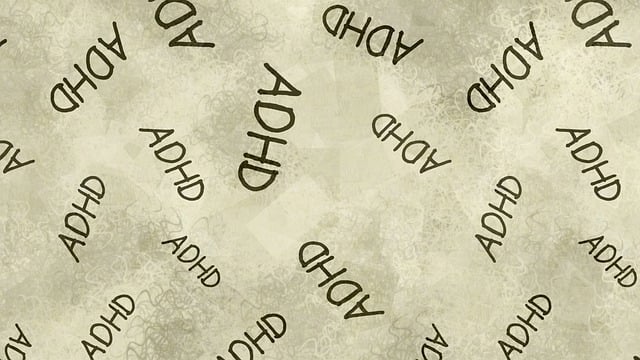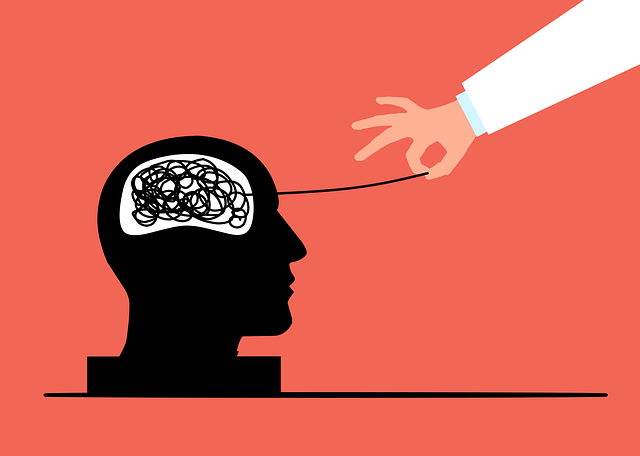Broomfield Veterans Therapy offers a comprehensive, holistic approach to mental wellness for veterans, addressing trauma and PTSD through evidence-based therapies including group sessions, individual counseling, and skill-building workshops. The program focuses on emotional resilience, mood management, self-esteem, and emotional intelligence, empowering veterans with tools for coping, building support networks, and successfully transitioning to civilian life. Evaluations using both quantitative (surveys, data analysis) and qualitative (feedback forms, interviews) methods are crucial to measure the program's effectiveness and ensure continuous improvement tailored to diverse veteran needs.
Mental wellness programs play a pivotal role in veteran care, addressing unique challenges faced by this population. This article explores the evaluation methods employed to assess the effectiveness of such initiatives, using Broomfield Veterans Therapy as a case study. We delve into defining mental wellness and its significance for veterans, then detail quantitative and qualitative assessment techniques. Understanding these tools equips us to measure success and impact, ensuring programs like Broomfield Veterans Therapy provide optimal support.
- Understanding Broomfield Veterans Therapy: An Overview of the Program
- Defining Mental Wellness and Its Significance in Veteran Care
- Evaluation Methods: Tools for Measuring Success and Impact
- Quantitative Assessment Techniques for Program Evaluation
- Qualitative Approaches: Unlocking Insights Through Feedback and Testimonials
Understanding Broomfield Veterans Therapy: An Overview of the Program

Broomfield Veterans Therapy is a specialized program designed to cater to the unique mental health needs of veterans. This initiative recognizes the distinct challenges that veterans often face, including trauma, PTSD, and transition-related stress. The program offers a comprehensive approach to healing, focusing on evidence-based therapies tailored to individual service members’ experiences.
Through a combination of group sessions, individual counseling, and skill-building workshops, Broomfield Veterans Therapy aims to enhance emotional resilience. Key aspects include improving mood management strategies, fostering self-esteem improvement, and cultivating emotional intelligence. The therapy model encourages veterans to develop coping mechanisms, build support networks, and acquire tools for navigating life transitions successfully.
Defining Mental Wellness and Its Significance in Veteran Care

Mental wellness is a comprehensive state of emotional, psychological, and social well-being that transcends the absence of mental illness. It encompasses a person’s ability to navigate life’s challenges, manage stress, maintain healthy relationships, and foster a positive sense of self. For veterans transitioning back into civilian life, achieving and maintaining mental wellness is paramount due to the unique traumas and stressors they often face. This is where Broomfield Veterans Therapy plays a vital role, offering specialized programs tailored to address their complex needs.
The significance of mental wellness in veteran care cannot be overstated. Effective interventions aimed at enhancing mental health can lead to improved overall well-being, increased resilience, and better reintegration into the community. Programs that incorporate evidence-based practices, such as cultural competency training for healthcare providers, Mental Wellness Journaling Exercise Guidance, and Self-Esteem Improvement techniques, have proven to be game-changers in veteran support initiatives. By fostering a holistic approach, these methods not only address immediate concerns but also equip veterans with lifelong tools for managing their mental health.
Evaluation Methods: Tools for Measuring Success and Impact

Effective evaluation methods are crucial for understanding the success and impact of mental wellness programs, such as those offered by Broomfield Veterans Therapy. These tools allow professionals to assess progress, identify areas for improvement, and ensure that interventions are achieving their intended outcomes. One key method involves utilizing standardized assessments designed to measure specific aspects of mental health, including symptoms, functioning, and quality of life. These assessments provide quantitative data that can be tracked over time, enabling therapists to visualize improvements and make informed adjustments to treatment plans.
Additionally, qualitative methods, such as client feedback and interviews, offer valuable insights into participants’ experiences and perceptions. This feedback highlights the effectiveness of communication strategies, stress management techniques, and self-esteem improvement programs implemented within the mental wellness initiatives. By combining quantitative and qualitative data, therapists at Broomfield Veterans Therapy can gain a comprehensive understanding of program success and tailor interventions to better meet the diverse needs of their clients.
Quantitative Assessment Techniques for Program Evaluation

Quantitative assessment techniques play a pivotal role in evaluating the effectiveness of mental wellness programs, such as those offered at Broomfield Veterans Therapy. These methods involve measuring and analyzing data to gain insights into program outcomes. One common approach is survey distribution and collection of quantitative responses from participants before and after the program. This allows for comparison of mental health symptoms, satisfaction levels, and overall well-being, providing tangible evidence of a program’s impact.
Additionally, statistical analysis can be employed to identify trends and correlations within the collected data, highlighting areas of strength or weakness in the program. For instance, tracking changes in anxiety or depression scores over time using tools like standardized assessment questionnaires can demonstrate the efficacy of mind over matter principles and positive thinking techniques implemented within the program at Broomfield Veterans Therapy.
Qualitative Approaches: Unlocking Insights Through Feedback and Testimonials

Qualitative approaches play a pivotal role in evaluating mental wellness programs, offering a deep understanding of participants’ experiences and insights that quantitative methods might miss. Techniques like feedback forms, interviews, and focus groups allow individuals to share their stories, highlighting both the positive and negative aspects of the program. This qualitative data provides valuable context, such as how specific activities within Broomfield Veterans Therapy facilitate anxiety relief or whether certain therapeutic practices, like mindfulness meditation, offer crisis intervention guidance tailored to unique needs.
Through these methods, participants can articulate the impact of the program on their mental health journey. Their testimonials can reveal patterns and themes, offering a comprehensive view of what works well and areas for improvement. This qualitative evaluation is essential in refining programs, ensuring they remain effective and aligned with the evolving needs of those seeking support, including veterans facing various challenges.
Broomfield Veterans Therapy has established a robust framework for mental wellness support, emphasizing the crucial role of evaluation methods in measuring success and impact. By combining both quantitative and qualitative assessment techniques, the program offers a comprehensive approach to understanding its effectiveness. Quantitative methods provide tangible data on participant progress, while qualitative approaches delve into personal testimonials and insights, painting a vivid picture of the therapy’s influence. This dual-pronged strategy ensures that Broomfield Veterans Therapy continues to evolve, catering to the unique mental health needs of veterans with precision and care.









